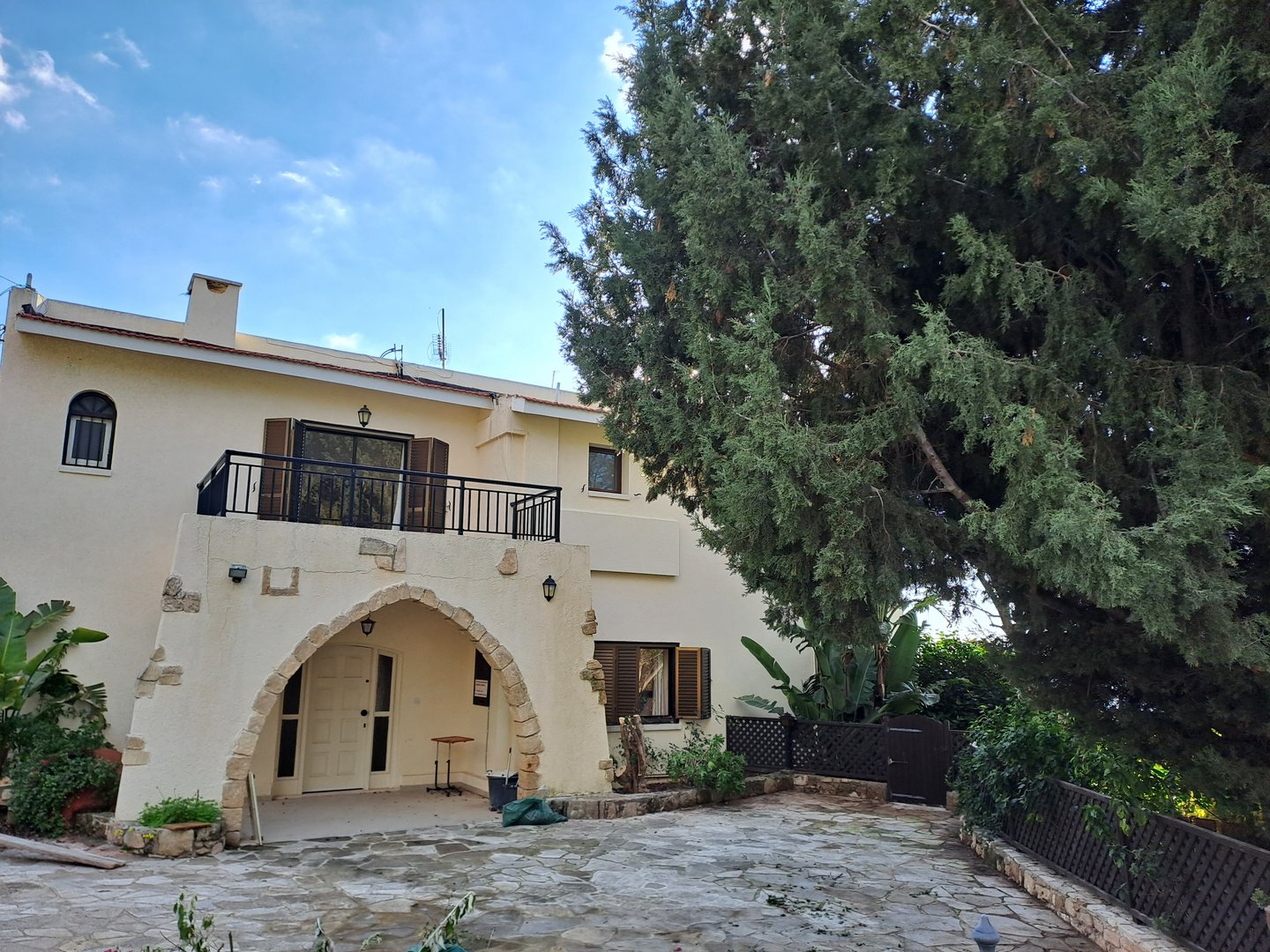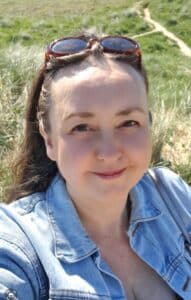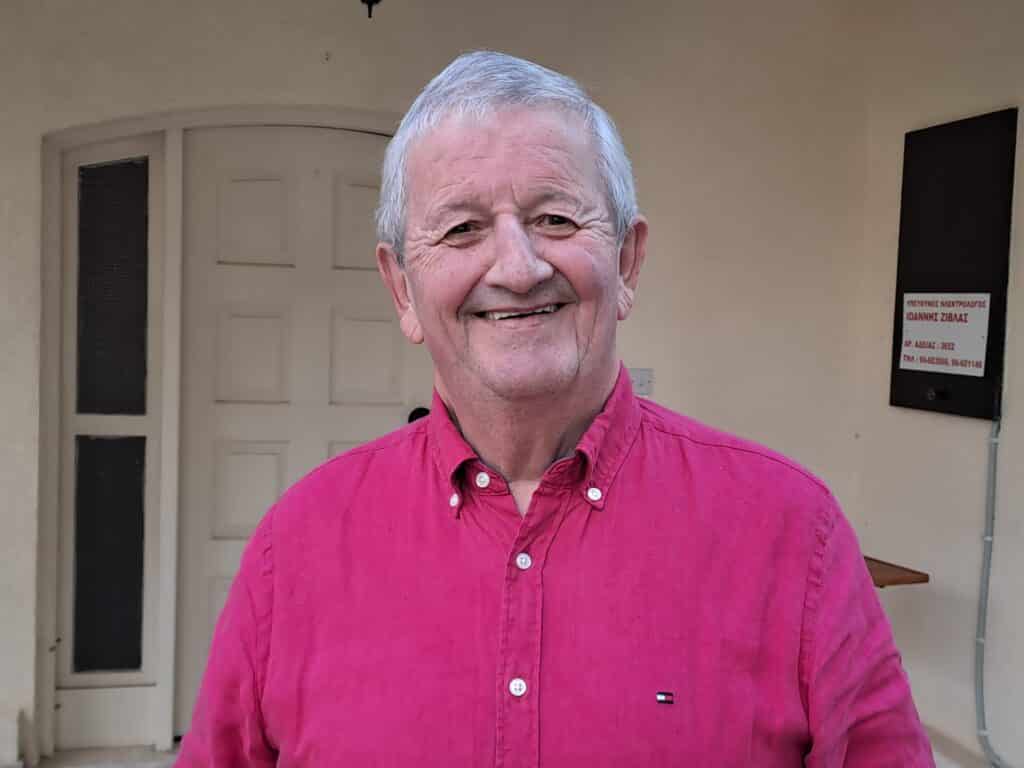A new hospice is due to open in Paphos, but it came too late to help terminally ill Janice Hunter
Just over a year ago, Paphos resident David Hunter, killed his terminally ill wife of 56 years and attempted to take his own life after she died; he remains in prison in Nicosia awaiting trial, which is due to get underway – yet again – on January 9.
The couple’s daughter, Lesley Cawthorne, who lives in the UK, told the Cyprus Mail that she believes the outcome could have been so different if the couple had better access to medical treatment during the pandemic, along with support of a hospice. Dealing with acute pain and terminal illness took an enormous toll on their mental health.
“My parents found it increasingly difficult to access medical support during the pandemic. I think access to a hospice could have made a massive difference as well. In many ways, I see my parents as victims of a lockdown which left many vulnerable people isolated and without adequate support,” she said.
Chris Jones, the president of the Friends Hospice Foundation, might not personally agree with mercy killings but he does agree that if the much anticipated ‘home from home’ Friends Hospice in Tala were open, the couple would’ve had access to the professional support which they obviously needed.
The charitable organisation has been helping people cope with life limiting illnesses and their families since 2006 in Cyprus, and after losing their last location at St Georges Hospital, they were gifted a six-bedroom house in Tala, Paphos, which is currently undergoing renovations. Jones hopes it will be open this year.
“If Mr Hunter were able to bring his wife to the Friends Hospice I am confident that he would have been supported and she would have been looked after and there would have been a different outcome, as we wouldn’t be doing our job otherwise. Hospices care for the dying, that is what we do,” he said.
Hunter, a 74-year-old Briton accused of the murder of his wife Janice last December, saw his trial recently adjourned last month, after both the defendant’s attorneys could not attend the proceedings having contracted Covid-19. It had been postponed seven times before that.
In a blow to his case, the murder charge against him remains unchanged despite hopes it might be mitigated to manslaughter. However, in a last-minute decision, the attorney-general rejected the deal. Prosecution attorney Andreas Hadjikyrou cast doubt on whether the killing had been agreed upon, saying that while Hunter may have killed his wife out of pity, that does not mean she had consented to it.
The prosecution says there was no physical or verbal proof of the agreement. It has also argued that accepting this could set a precedent for future crimes.
The pensioner blocked his wife’s airways as she sat in the couple’s sitting room in their Tremithousa home and then tried to take his own life after informing his brother, William, in the UK, that he had killed his cancer-stricken wife.
“It’s an incredibly difficult time for my family and the strain of the last 13 months has taken a huge toll on all of us, particularly my dad. I always hate to criticise Cyprus because the country gave my parents a wonderful retirement and the Cypriot people who have reached out to me have been very kind,” Lesley told the Cyprus Mail.
“However, our experience of the justice system has been disappointing and distressing. We were shocked and devastated when the plea bargain fell apart only days before Christmas. We genuinely believed all parties had acted in good faith and an agreement had been reached so we were left reeling by the U-turn.”
The case, and the subject of assisted suicide, is taboo for many and has stirred ferocious debate in Cyprus, a Greek Orthodox country. It has brought to the fore a tough conversation: the right to die and the difficulties that many terminally ill patients and their families face. Last year MPs debated the thorny issue and described it as highly sensitive. Although many people are sympathetic to Hunters’ position, many are also vehemently opposed to ‘mercy killings’.
The new hospice facility will surely help many families and individuals facing similar circumstances to the Hunters, said Jones, as the single focus of the Friends Hospice is to deal with people with life limiting illnesses. And it will soon be a reality, as the hospice has a licence from the ministry of health and in the last two weeks, received permission from the planning department for change of use.
“We will be working closely with the Cyprus anti-cancer association and have a memorandum of cooperation with them,” he said.
Although there is a considerable amount of work to be done to bring the building in line with the ministry of health stipulations, for example each of the bedrooms must be en suite, Jones is hopeful that the hospice will be open and accepting people in the next 12 months.
The main outlay for the hospice will be the nursing staff, and it will cost over €250,000 a year to operate, he said.
Janice was suffering from blood cancer with which she was diagnosed in 2016, and David alleges that she begged him to help her end her life, as she was suffering insurmountable pain. Should there be a right to die? The subject is highly sensitive and evokes strong emotions and opposing views.
Countries currently have different euthanasia laws, and names include assisted suicide, termination of life on request and so on, but it all boils down to the fundamental question, do we and should we have the right to chose to end our life, morally, ethically, and legally?
“Active euthanasia” is allowed in only a few countries,Belgium, Canada and Switzerland and only in specific circumstances, with the approval of doctors and specialists. Cyprus law forbids doctors to perform euthanasia but almost 50 per cent of nursing staff agree that euthanasia should be offered to patients who are suffering, a recent survey has shown.
Many people believe that it is wrong to take a life, even if that life is a human being suffering insurmountable pain with no quality of life.
“I am a Christian and I believe that it is a terrible sin to do this and although I can feel sympathy for him (David) and his wife, he should not have killed her. This is a crime and must be punished. The court in Cyprus will decide what the outcome should be and this is correct,” a Cypriot business woman in its her 50s commented, on condition of anonymity.
“The case, the first of its kind to be tried in Cyprus, raises all sorts of ethical questions,” said Andreas, a Limassol resident.
“This is a very difficult subject and a big subject. Death is something that is going to happen to us all, it is a natural process and I personally think that if someone is terminally ill and in a lot of pain and want to end it, it is their choice and no laws should prevent this. However, there must be strict laws and regulations in place to ensure that the end-of-life process is all done correctly. If this was already in place in Cyprus, this man would not have killed his wife and then tried to kill himself.”
Lesley has acute concerns over the fate of her father at the hands of the Cypriot authorities. “In all honesty, I worry deeply about whether my dad will receive a fair trial when the authorities seem determined to make an example of him in order to close down the euthanasia debate. I hope justice isn’t sacrificed in the name of political point scoring.”








Click here to change your cookie preferences